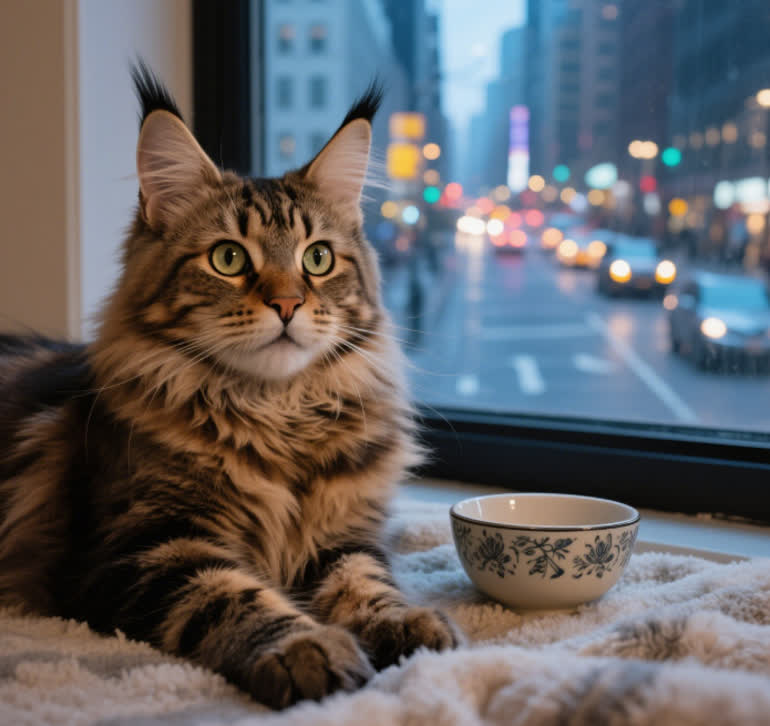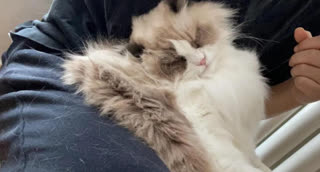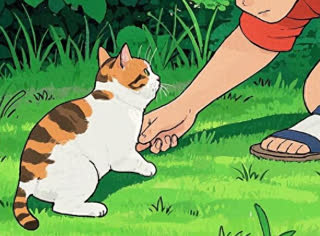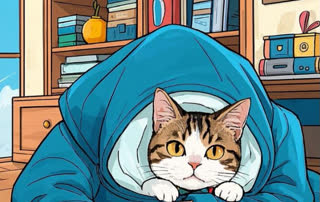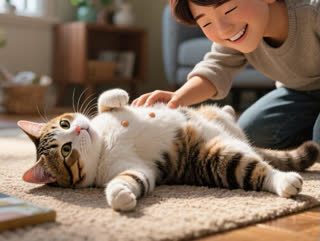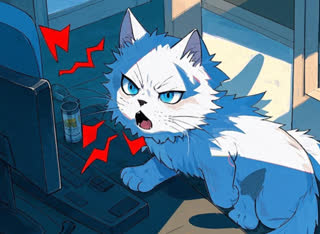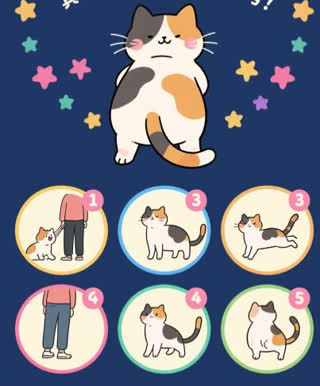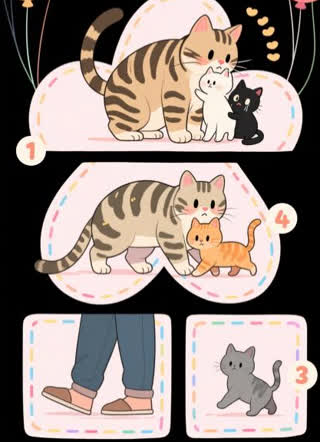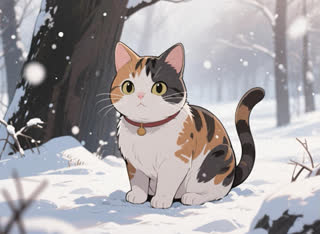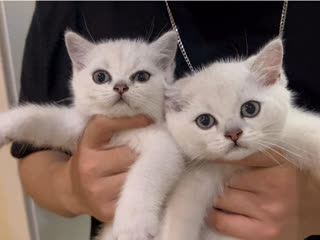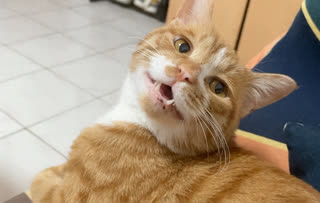Maine Coon cats have long captivated cat lovers with their majestic appearance and dog-like loyalty. But do these "gentle giants" truly recognize their owners, or is their affectionate behavior merely a myth? In this article, we’ll delve into the science of feline attachment, explore Maine Coon-specific traits, and provide actionable tips to foster a deep, lasting bond with your furry companion. By the end, you’ll understand why Maine Coons are often hailed as one of the most loyal cat breeds and how to nurture that connection effectively.
1. The Science Behind Feline Loyalty
Contrary to the stereotype of cats being aloof, modern research reveals a surprising depth of emotional attachment in felines. A landmark study by Oregon State University found that 64% of cats exhibit a "secure attachment style" to their caregivers, similar to human infants and dogs. This means they show distress when separated and seek reassurance upon reuniting. Notably, Maine Coons often score higher in loyalty compared to other breeds, with some studies ranking their loyalty at 9.05/10—surpassing even breeds like Persians and Siamese.
Maine Coons’ loyalty stems from their social nature and evolutionary history. Originating in harsh New England climates, these cats developed strong bonds with humans for survival, leading to their reputation as "dog-like" companions. Their ability to recognize owners is rooted in olfactory memory (scent recognition) and auditory cues (voice and footsteps), which they use to identify familiar individuals.
2. How Maine Coons Express Loyalty
Maine Coons display loyalty through distinct behaviors that set them apart:
a. Constant Companionship
Maine Coons are notorious for following their owners room-to-room, a behavior affectionately called "velcro cat" syndrome. They thrive on human interaction and often choose one family member as their "favorite," showering them with extra attention.
b. Protective Instincts
These cats exhibit a natural guarding behavior. For example, they may position themselves between their owner and perceived threats or alert family members to unusual sounds. Their large size (males can weigh up to 18 pounds) and powerful paws add to their protective demeanor.
c. Affectionate Gestures
Maine Coons express love through head-butting (bunting), kneading (pawing), and trilling (a unique vocalization). They also enjoy cuddling and may sleep beside their owners, reinforcing their bond through physical touch.
d. Emotional Intelligence
Studies show Maine Coons can sense human emotions and respond with comfort. They may nuzzle a crying owner or purr to calm anxiety, demonstrating a remarkable level of empathy.
3. Building Trust: Tips for Strengthening the Bond
While Maine Coons are naturally loyal, fostering trust requires intentional effort:
a. Early Socialization
Kittens raised in nurturing environments with consistent human interaction develop stronger bonds. Introduce your Maine Coon to various people, sounds, and environments during the 2-7 week socialization window to reduce anxiety later in life.
b. Establish a Routine
Cats thrive on predictability. Set regular feeding, play, and grooming times to create a sense of security. Maine Coons particularly enjoy interactive play with feather wands or puzzle toys, which stimulate their hunting instincts.
c. Respect Their Independence
Despite their sociability, Maine Coons value personal space. Allow them to initiate affection and provide quiet retreats (e.g., cat trees or cozy beds) to prevent stress.
d. Positive Reinforcement
Reward desired behaviors with treats or praise. Avoid punishment, as it can damage trust. For example, redirect scratching to appropriate surfaces instead of scolding.
e. Consistent Communication
Talk to your Maine Coon regularly. They respond to tone and may even learn their name. Simple phrases like "good morning" or "time to play" reinforce your role as a caregiver.
4. Debunking Myths About Maine Coon Loyalty
Misconceptions about Maine Coons often arise from their size and unique traits. Let’s address common myths:
a. Myth: They’re Too Independent to Bond
While Maine Coons aren’t clingy, they form deep emotional connections. Their independence is a sign of confidence, not 冷漠. They’ll seek attention when they want it, balancing autonomy with affection.
b. Myth: Only One Person Can Bond with Them
Maine Coons often bond with the entire family, especially children. They adapt well to household changes and may even protect younger family members.
c. Myth: They’re Aggressive
Maine Coons are among the most gentle breeds. Aggression typically stems from fear or poor socialization, not breed traits. Proper care ensures they remain affectionate.
d. Myth: They Don’t Need Grooming
Their thick, water-resistant coat requires regular brushing to prevent matting. Grooming sessions also serve as bonding time, allowing you to check for health issues.
5. Challenges in Bonding and How to Overcome Them
a. Separation Anxiety
Maine Coons may develop anxiety if left alone for long periods. Combat this by providing stimulating toys, a predictable routine, and gradual desensitization to alone time. Consider adopting a second cat for companionship.
b. Health Issues Affecting Behavior
Conditions like hip dysplasia or heart disease (common in Maine Coons) can cause discomfort and withdrawal. Regular vet check-ups and a high-protein diet help maintain their physical and emotional well-being.
c. Resistance from Adult Cats
Adult Maine Coons rescued from neglect may take time to trust. Patience, consistent care, and positive reinforcement are key. For example, offer treats while speaking softly to build rapport.
6. The Role of Genetics and Breed History
Maine Coons’ loyalty is influenced by their genetic makeup. Bred for resilience in harsh climates, they evolved to rely on humans for survival, making them inherently social. Their polydactyl paws (extra toes) and water-resistant fur further reflect their adaptable, hardworking heritage.
Additionally, Maine Coons exhibit selective breeding for friendly traits, ensuring their reputation as family-oriented pets. Reputable breeders prioritize socialization from birth, setting the foundation for strong owner bonds.
7. Real-Life Stories: Maine Coon Loyalty in Action
Countless owners share heartwarming tales of their Maine Coons’ devotion. For instance:
A Maine Coon named Loki alerts his diabetic owner to low blood sugar by nudging her awake at night.
Bella, a rescue Maine Coon, refused to leave her owner’s side during a cancer battle, providing comfort through chemotherapy sessions.
Oscar, a polydactyl Maine Coon, learned to fetch small items on command, showcasing his intelligence and eagerness to please.
These stories highlight how Maine Coons’ loyalty transcends mere companionship, often becoming emotional anchors for their families.
Conclusion
Maine Coon cats do indeed recognize and form deep bonds with their owners. Their loyalty, rooted in science and breed history, makes them exceptional companions for American families. By understanding their behavior, providing consistent care, and respecting their unique needs, you can nurture a lifelong relationship filled with affection and trust. As one owner aptly put it: "A Maine Coon isn’t just a pet—they’re a loyal friend who’ll stand by you through thick and thin."
